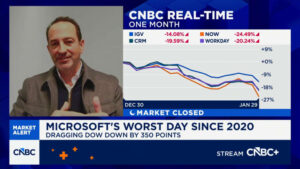Could health problems for Senate Minority Leader Mitch McConnell end up changing the balance of power in the narrowly divided Senate?
Not in the short run, thanks to the Kentucky Republican’s push more than two years ago for a law that restricts the state’s Democratic governor’s power to choose who can temporarily fill a U.S. Senate seat.
Under the new state law, the governor must choose from a list of three names provided by leaders from the same party as the senator who formerly held the seat.
Changing the Bluegrass State’s Senate vacancy rules was McConnell’s own idea, as the Louisville Courier Journal has noted. Kentucky is now one of seven states where the governor must choose from a list of nominees submitted by the previous senator’s party, according to the Pew Research Center. The others are Hawaii, Maryland, Montana, North Carolina, West Virginia and Wyoming.
McConnell’s future is in the spotlight after the 81-year-old froze for about 20 seconds during a press conference Wednesday afternoon. He was escorted away by GOP Sen. John Barrasso of Wyoming and others, but he later returned and responded to questions from reporters.
A McConnell aide told reporters Wednesday that the Senate’s top Republican “felt lightheaded and stepped away for a moment,” adding that the senator “came back to handle Q&A, which everyone observed was sharp.”
In March, McConnell was hospitalized and underwent rehabilitation after he suffered a concussion in a fall at a hotel.
While Kentucky Gov. Andy Beshear would have to appoint a Republican to temporarily fill the seat if McConnell were to leave the Senate, Kentucky’s law also calls for a special election to be held to fill a Senate seat for the rest of any unexpired term. The Democratic governor himself might end up winning such an election, according to Greg Valliere, chief U.S. policy strategist at AGF Investments.
“McConnell’s Senate seat isn’t totally safe, surprisingly, in conservative Kentucky. Moderate Democrat Gov. Andy Beshear is very popular and probably will win re-election this fall. Beshear could then eye the Senate seat,” Valliere said in a note Thursday.
Democrats control the 100-seat Senate by a narrow margin, with 51 senators who typically vote with the party vs. 49 Republicans.
From MarketWatch’s archives (November 2019): Democrats shouldn’t read too much into their win in the Kentucky governor’s race, analysts say
Who might become the Senate’s top Republican if McConnell were to depart? Valliere sees one of three GOP senators as likely to take over the job of minority leader.
“McConnell could step down before he’s up for re-election in 2026, although Republicans are in no rush to push him out; he’s still considered a master strategist. If he steps down, there would be a three-way race to succeed him,” Valliere wrote. Those three senators, he said, are Barrasso, Senate Republican Whip John Thune of South Dakota and former Whip John Cornyn of Texas. Thune’s whip role makes him the No. 2 Senate Republican, while Barrasso is the chamber’s No. 3 Republican.
A number of political figures have drawn attention this year due to their advanced age or health problems, including President Joe Biden, Democratic Sen. Dianne Feinstein of California and Democratic Sen. John Fetterman of Pennsylvania.
After McConnell’s freezing episode, NBC News reported that the senator had tripped and fallen while disembarking from a plane at Ronald Reagan Washington National Airport earlier this month but was not seriously hurt. NBC also said he recently has been using a wheelchair as a precaution when he navigates crowded airports.
On Thursday morning, McConnell took part in a meeting with Italian Prime Minister Giorgia Meloni. The senator stood and smiled during a photo op with Meloni and with other U.S. lawmakers. He also gave a Senate floor speech Thursday in which he criticized Democrats’ Inflation Reduction Act as it nears its one-year anniversary.
“Our Democratic colleagues sold their reckless spending spree as a ‘Made in America’ investment, but the only thing that it appears to be making in America is a mess,” he said in his speech.
McConnell’s office didn’t immediately respond to MarketWatch’s request for comment Thursday. His communications director tweeted a video of the senator smiling in response to a Twitter post about how his floor speech didn’t mention Wednesday’s episode.
On Wednesday evening, McConnell told reporters that Biden had called to check on him, adding that he joked to the president that he “got sandbagged,” a reference to Biden’s remarks last month after he tripped over a sandbag. McConnell also repeatedly said, “I’m fine.”
Wednesday’s episode has sparked fresh talk about term limits.
“I think that we should have possibly an age limit, at the very least a cognitive test at some point, and we need term limits now,” GOP Rep. Lauren Boebert of Colorado said late Wednesday in a One America News interview. She also said her “heart goes out to Mitch McConnell for his health.”
The outlook for term limits isn’t promising, according to a recent op-ed by attorney William Natbony in the Fulcrum, a publication focused on repairing U.S. democracy.
“The cold reality is that members of Congress have no interest in limiting their terms. Membership in Congress is their occupation, and they intend to maximize their chances of continuing in their jobs. That’s a bipartisan goal, as common among Republican members of Congress as it is among Democrats,” he wrote.
“Although Senator Ted Cruz in 2017, 2019, 2021 and 2023 introduced a Constitutional amendment that would limit U.S. Senators to two six-year terms and House members to three two-year terms, the proposal has received no serious consideration from either political party and no effort has been made by [Texas GOP] Senator Cruz or other elected officials to garner public support.”
This post was originally published on Market Watch






